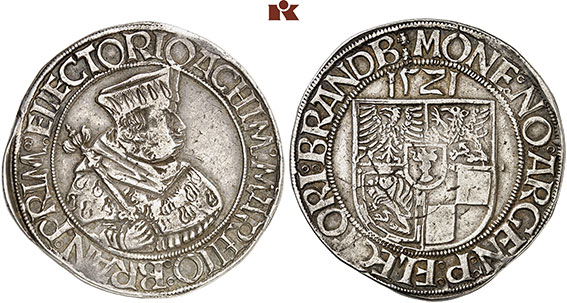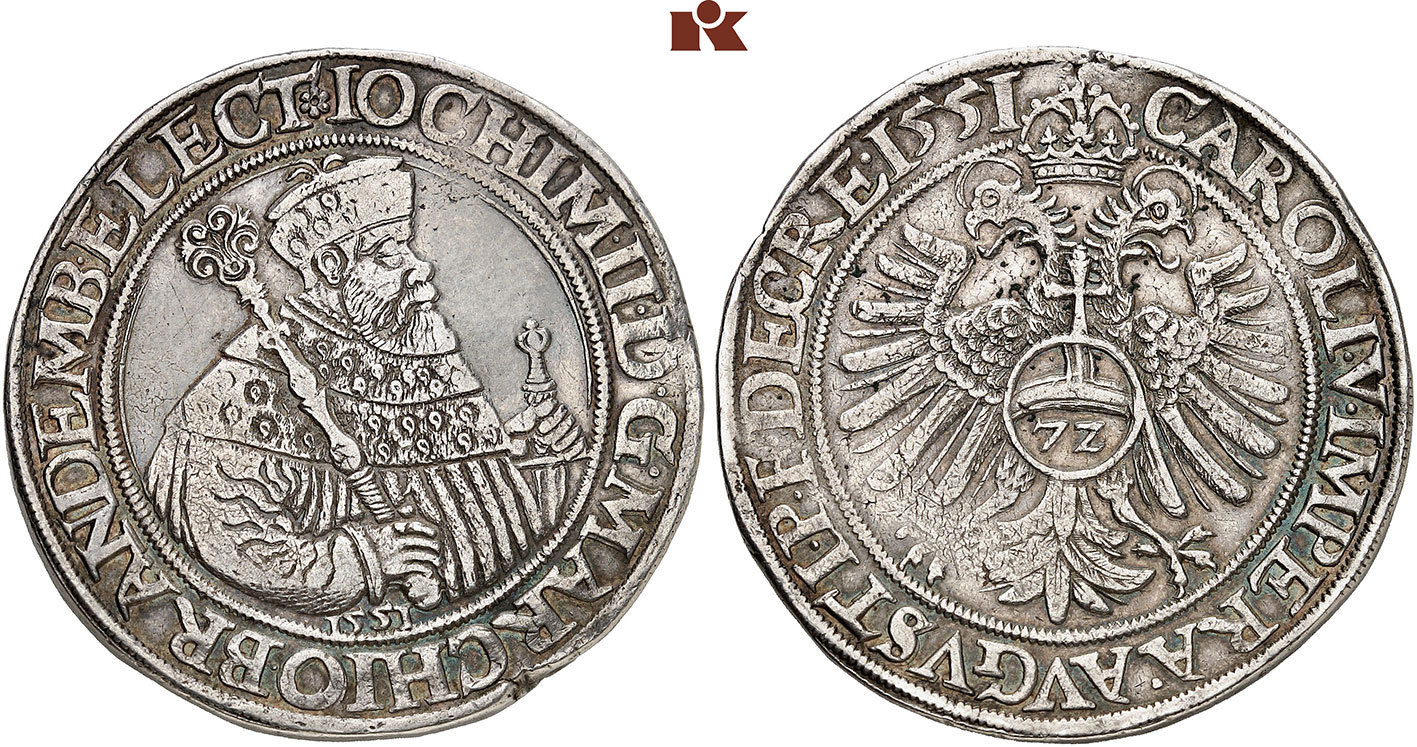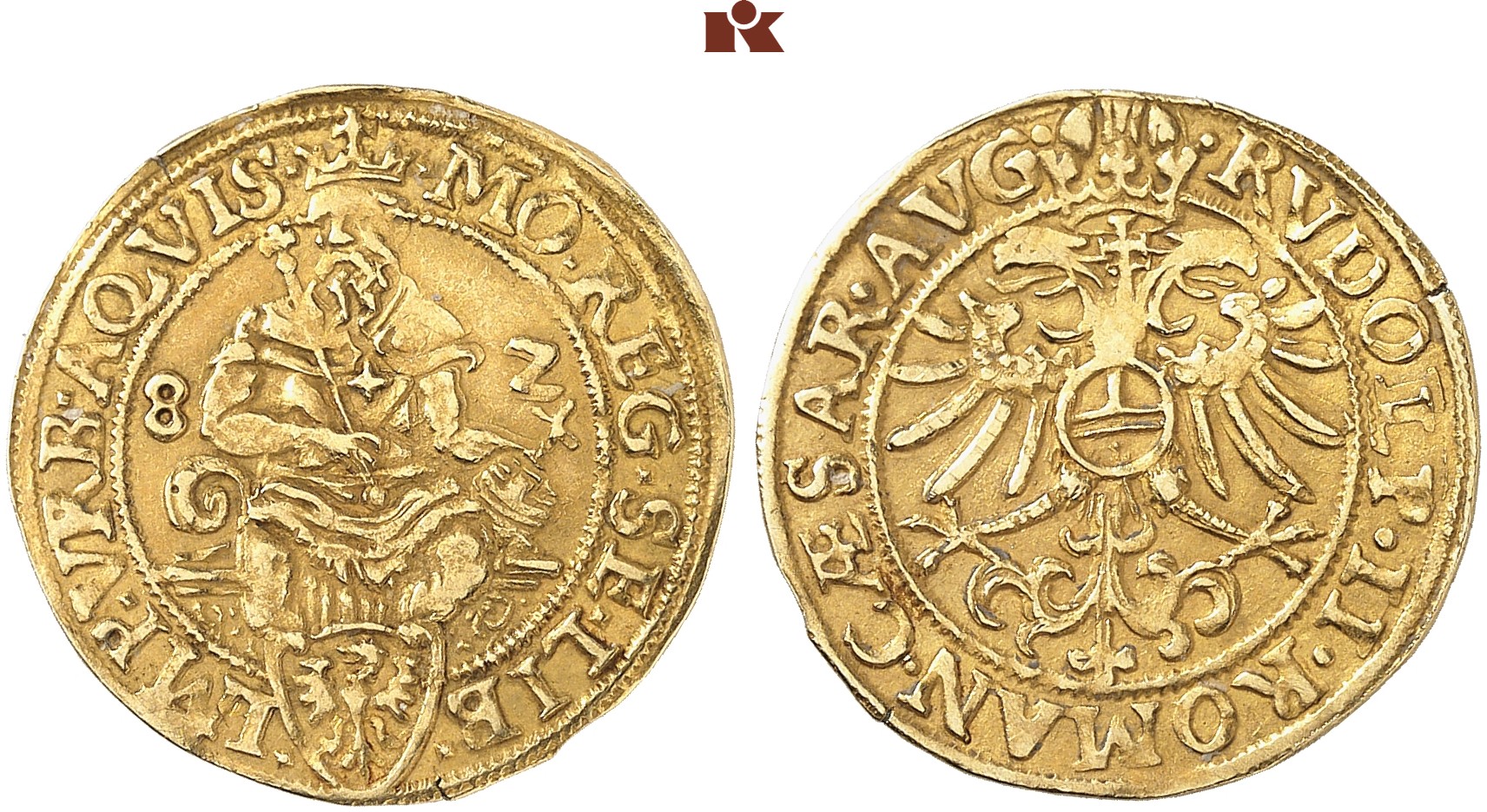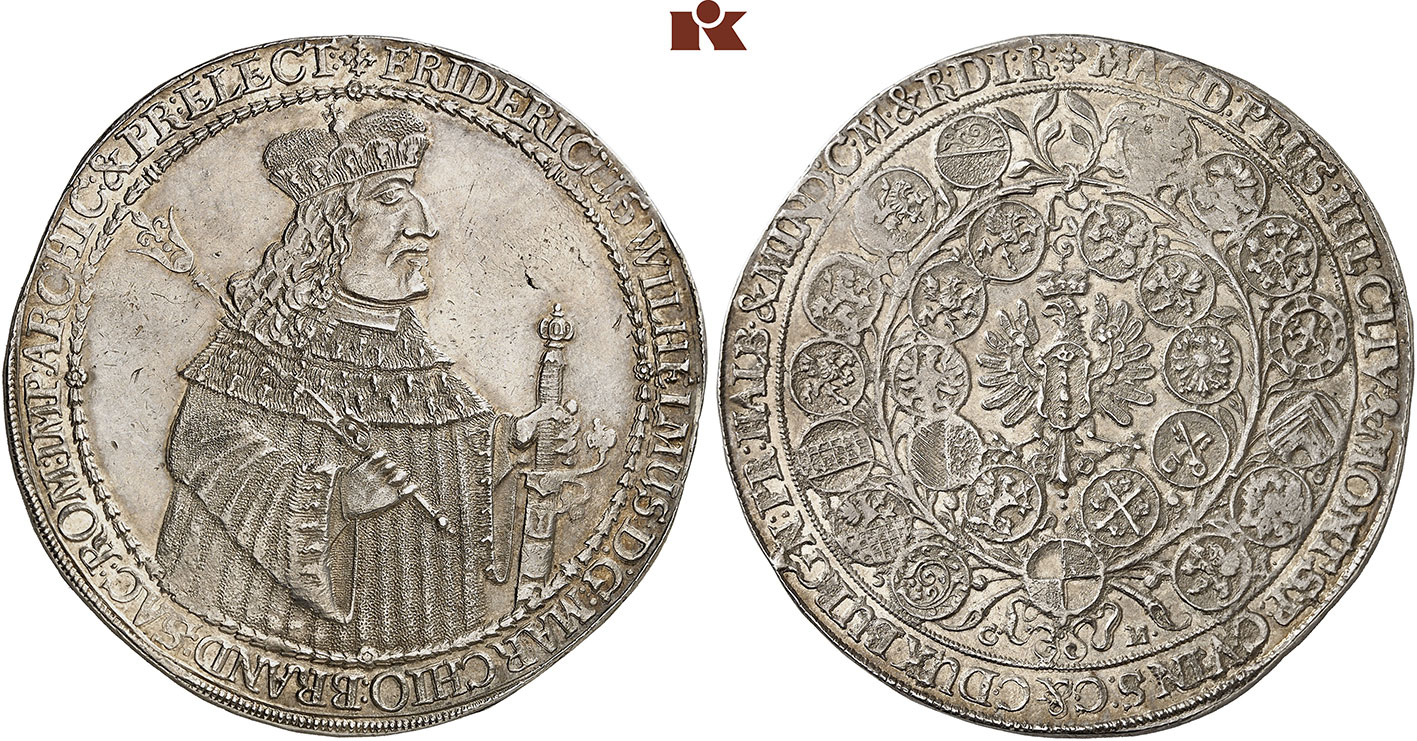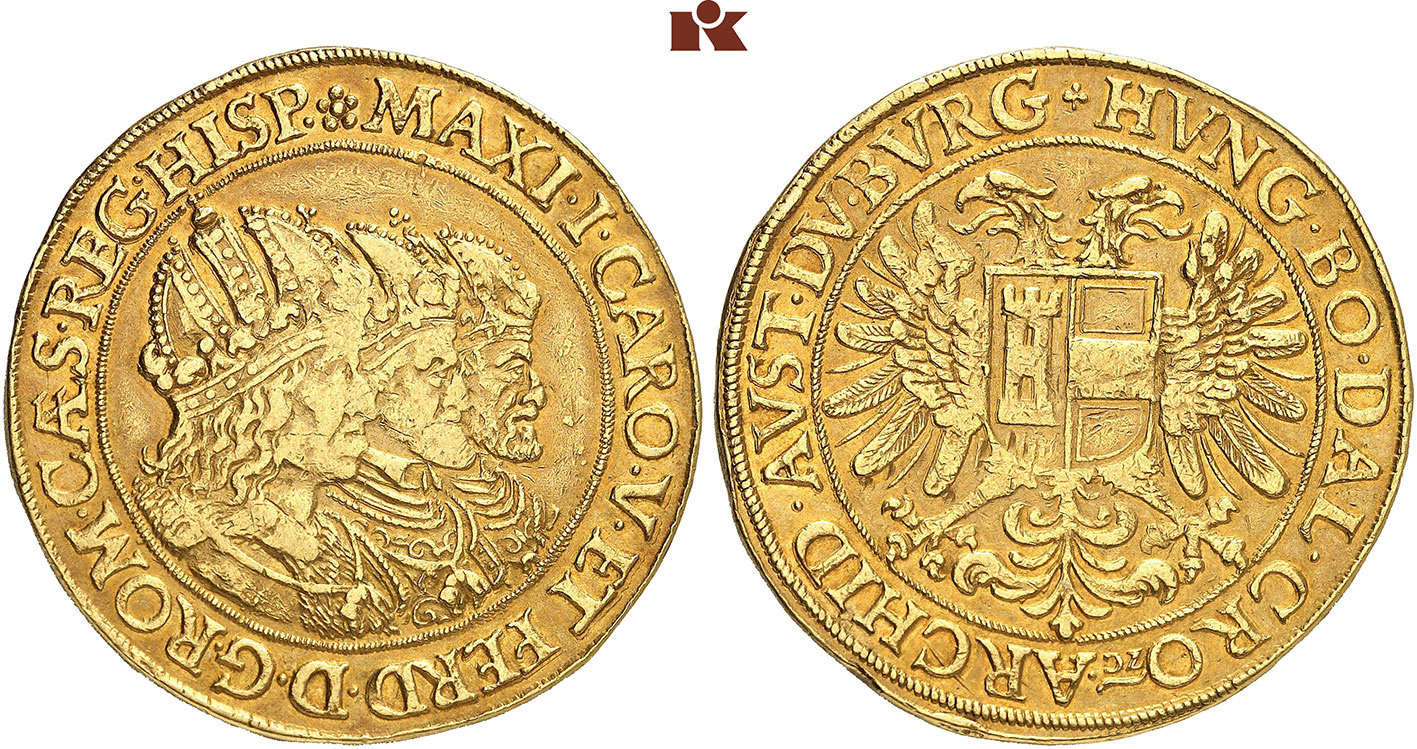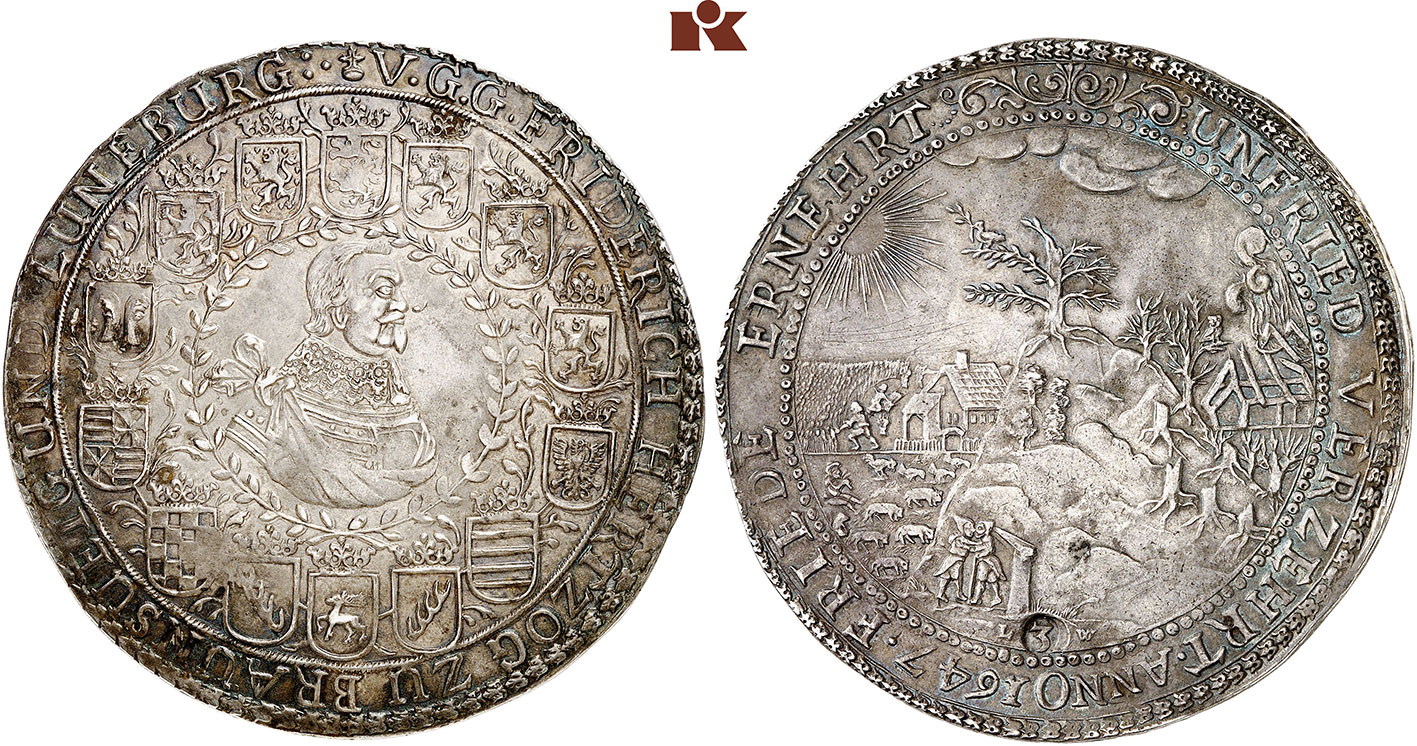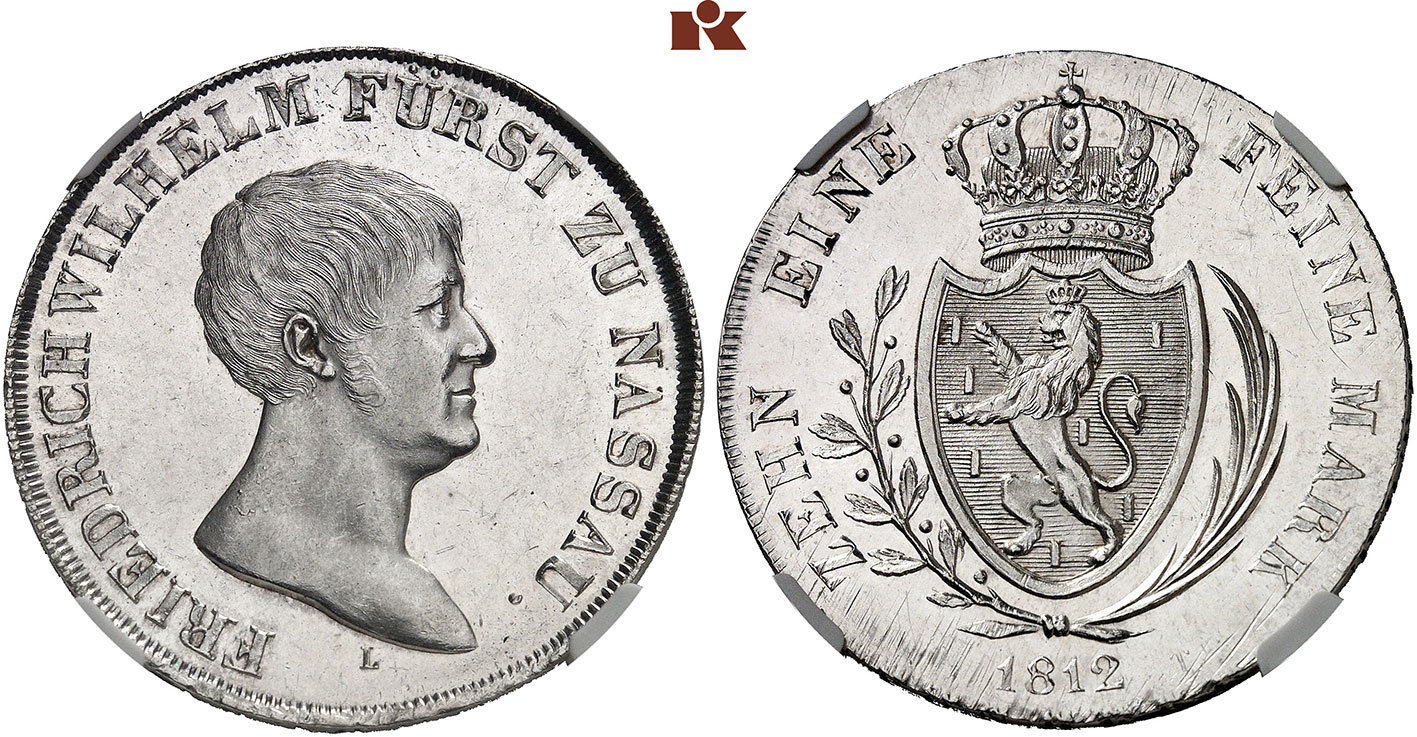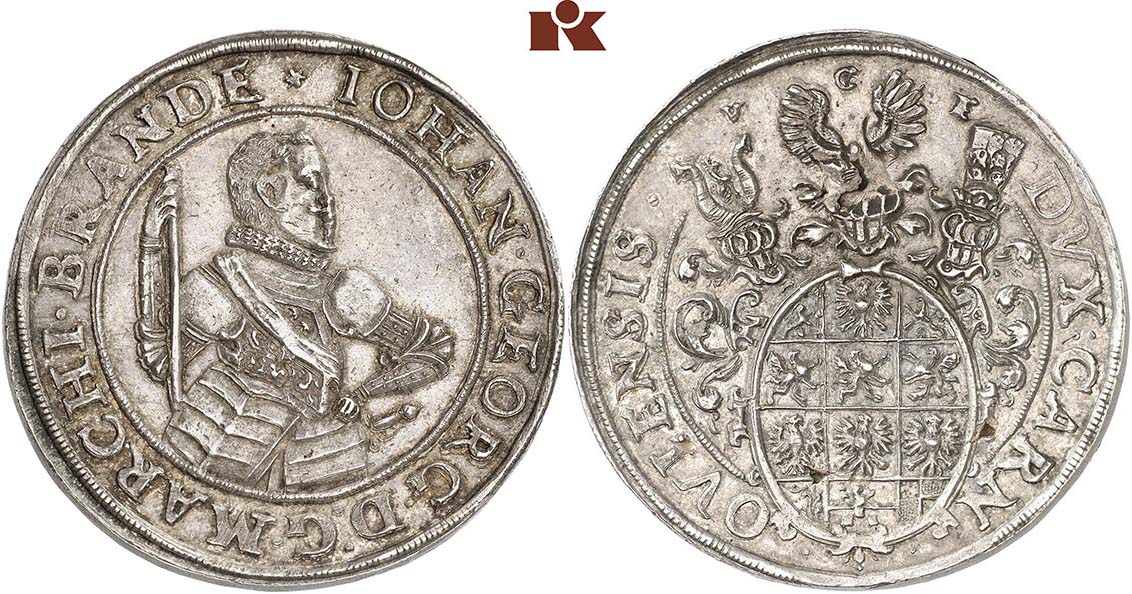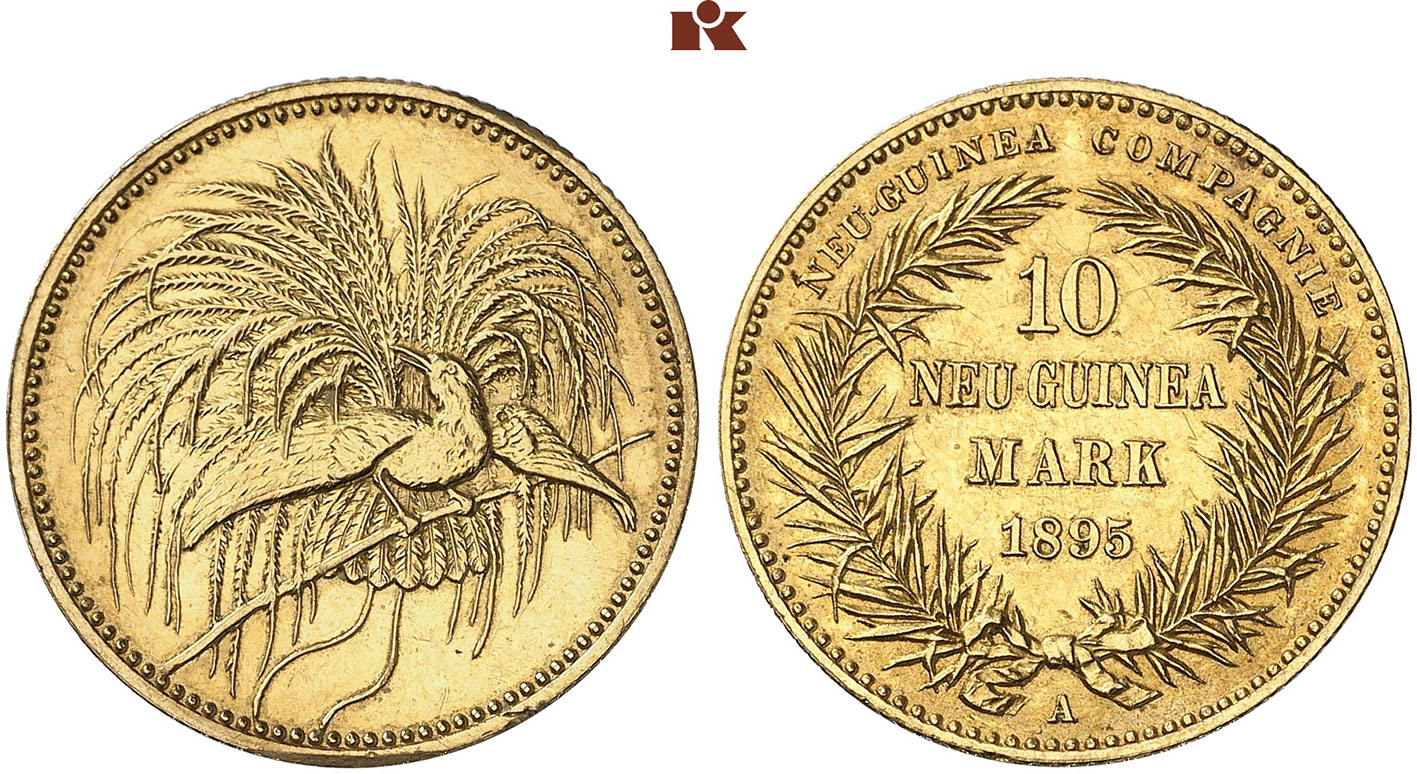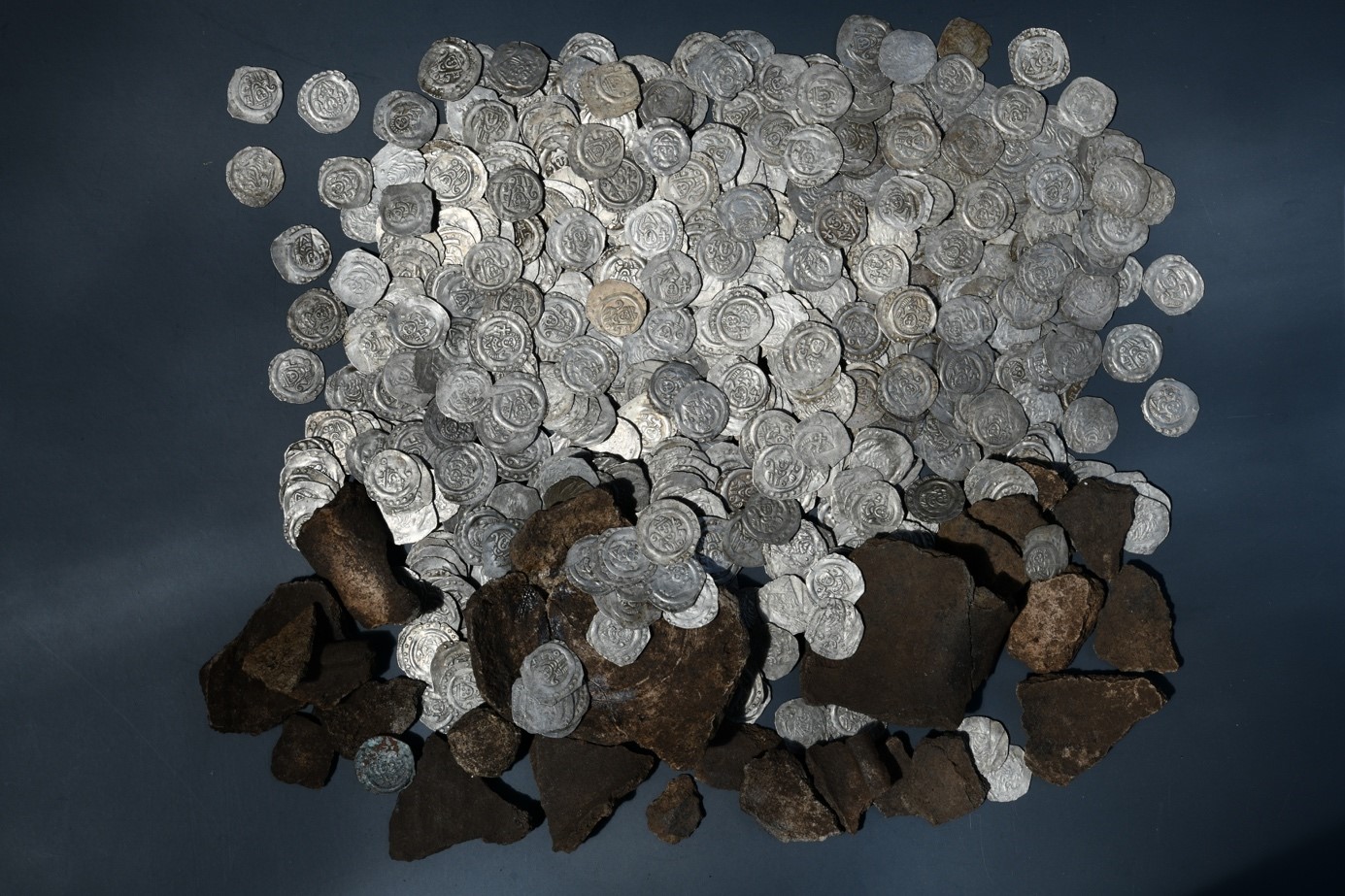Our Spring Auction Sales 347-349
18. February 2021
From 22 to 26 March 2021 our Spring Auction Sales take place. Exciting pieces will be offered in a total of three auctions. Among them are no less than several extensive private collections. It begins with the collection of an historian: coins from Egypt and Rome. Anyone familiar with Alexandrian coinage will immediately notice how spectacular the collection is. And this isn’t the only collection in catalogue 347 - Coins from the Ancient World: the impressive life’s work of three other collectors is brought back to the market. Next is catalogue 348. It contains the first part of the Dr Axel Tesmer Collection with issues of Brandenburg margraves and electors from the beginnings of the 12th century to 1701, when Prussia was elevated to a kingdom. Catalog 349 contains World coins and medals, this time gold and silver issues were not separated but are presented together in a single catalog. Here, too, attentive readers will encounter several interesting collections, for example the Erich Götz Collection of yield and mining issues. The fact that Künker is always in a position to offer such spectacular collections to its customers is testimony to the trust that collectors of the entire world place in the auction house by consigning the results of their collecting activities for auction. Throughout its 50-year history, we are always proud to assist collectors to form their collections from the very beginning until they re-entered the cycle by being sold to other collectors via an auction at the end of a successful collecting life. 0
Catalog 347: Egypt and Rome - The Collection of an historian
The battle for Egypt, which became decisive in the struggle for dominance in the Roman Empire, is probably one of the most exciting stories out there. After all, Egypt was the granary of the Mediterranean. Whoever was in control of Egypt could provide its subjects with plenty of food. But this wasn’t the only thing that made Egypt so special. As the entries to the Nile Valley were easy to control, the area was particularly suitable as a monetary special zone: as early as under the Ptolemaic dynasty, Egypt had its own currency, which was overvalued considering its metal value. And the Romans continued this system. They had coins minted for Egypt featuring motifs of Egyptian culture. There is hardly another coinage system that is more versatile and exciting in terms of images than Egyptian coinage under Roman rule. And the collection of an historian focuses on the most interesting pieces. If you already know something about the coins of Roman Alexandria, you will gaze in awe at the items. The spectrum ranges from Antinous and nome issues to the 12 labours of Heracles and the astrological signs of the Sothic cycle to rare issues of the Severan dynasty and their two predecessors. For all those who do not know anything about these issues (yet), catalog 347 is an exciting picture book that will make the eyes of any fan of Egypt sparkle with joy. We will just mention the “Lighthouse of Alexandria” here. It isn’t the only thrilling motif on the reverse of the coins. Many portrait collectors know that members of the imperial families which can rarely be found on other issues are depicted on Alexandrian coins. The great advantage: Egyptian issues are usually much more affordable than their imperial Roman counterparts. Speaking of which, in addition to the coins of Roman Alexandria, the “historian” also collected Roman coins. He focused on the historical importance of the reverse, which means that lovers of Roman history can look forward to a wealth of issues with interesting stories. This collection is complemented by some very interesting coins of the Ptolemaic dynasty.
Coins from the Ancient World
More than 500 lots from the collection of an historian are followed by another ca. 800 lots with coins of the ancient world, including Celtic issues and coins of the migration period and the oriental world. Three other private collections will be sold in auction 347: the Heinrich Rudolf Peter Collection with a focus on Syracuse, another part of the collection of a Hanseatic connoisseur of Roman coins with rare denarii of outstanding quality and the Walter Weise Collection. Walter Weise had excellent taste regarding the quality of the engraving. Thus, his collection contains tetradrachms, staters and denarii of outstanding quality - both regarding condition and style. He was particularly interested in Seleucid coins, and experts will spot many great rarities in this section. Thus, studying the catalog attentively is worth it for every lover of ancient coins, even if you cannot afford all the splendid aurei offered by Künker.
Brandenburg: The Axel Tesmer Collection, part 1
There is probably no other state of the Holy Roman Empire that shaped Germany as much as Prussia did. To understand how the phenomenon “Prussia” came about, it is worth taking a look at history and go far back to the Middle Ages. And that can be done by means of the coins from the Axel Tesmer Collection, whose first part will be auctioned off in auction 348 on 23 and 24 March 2021.
Axel Tesmer (1926-2019), born into a Berlin family, is one of those whose passion for numismatics was inspired by his grandfather. Over the course of various decades, the collector compiled an impressive and comprehensive documentation of the monetary history of the Margraviate of Brandenburg. At this point we’d like to quote from the preface: “Axel Tesmer did not intend to focus on one particular era of Brandenburg-Prussia but rather to collect coins from the Margraviate of Brandenburg and also the Brandenburg Electorate and the Kingdom of Prussia as extensively as possible.” Regardless of whether the coin had a value of DM 5 or DM 10,000 when he bought it – Axel Tesmer cataloged and examined it with the same attention.
The Axel Tesmer Collection gives anyone interested in Brandenburg coins the chance to take part in the auction. Estimates range between 20 euros and 50,000 euros. Thanks to the excellent publication of a magnificent collection, Künker’s catalog 348 will become another standard reference work to be found in every well-equipped numismatic library.
|
The first Brandenburg gold coin and
|
The first Brandenburg taler.
|
World Coins and Medals with different collections
On Wednesday afternoon, about 2,500 lots of catalog 349 will be auctioned off. The sale starts with World gold coins. As is often the case, one central part focuses on issues of the German States and the German Empire. Those interested in sovereigns from Great Britain and Australia should also take a close look at the catalog. This is followed by the Erich Götz Collection of “Montangeprägen” (yield and mining issues). This part of about 240 lots focuses on the collector’s home region, the Upper Palatinate. However, Erich Götz, who refined and traded minerals in more than 60 countries, also turned his attention to other areas. If you are looking for interesting scenes from the world of mining and refining - not only regarding gold and silver mining but also salt and iron ore extraction - you will find them in the Erich Götz Collection. We already came across the collector Heinrich Rudolf Peter in catalog 347. Catalog 349 contains all the coins of other fields he was interested in. They range from World gold coins to an extensive collection of Silesia issues, especially from his native town of Jägerndorf, the residence of the duchy bearing the same name. In addition to numerous rarities and interesting individual pieces, catalog 349 offers a comprehensive selection of coins from the regions of Schaumburg-Lippe and Holstein-Schauenburg as well as a small collection of issues from Norway.
The Markstetten Coin Hoard
In the summer of 2017, a clay vessel containing a total of 560 coins was found near the town of Markstetten in the Upper Palatinate / Bavaria. Except for a single Nuremberg pfennig, all issues were minted in Regensburg. The hoard was probably buried after 1227. Thanks to the scholarly review of the find, it was possible to gain a lot of new insight into Regensburg coinage and to catalogue two new coin types.
The recovered hoard was handed over to the Munich State Coin Collection, documented and registered. The relevant Bavarian authorities were informed. They have not exercised their right of first refusal, which is why the hoard can be auctioned off at Künker. It will be sold in a single lot with an estimate of 15,000 euros.


















